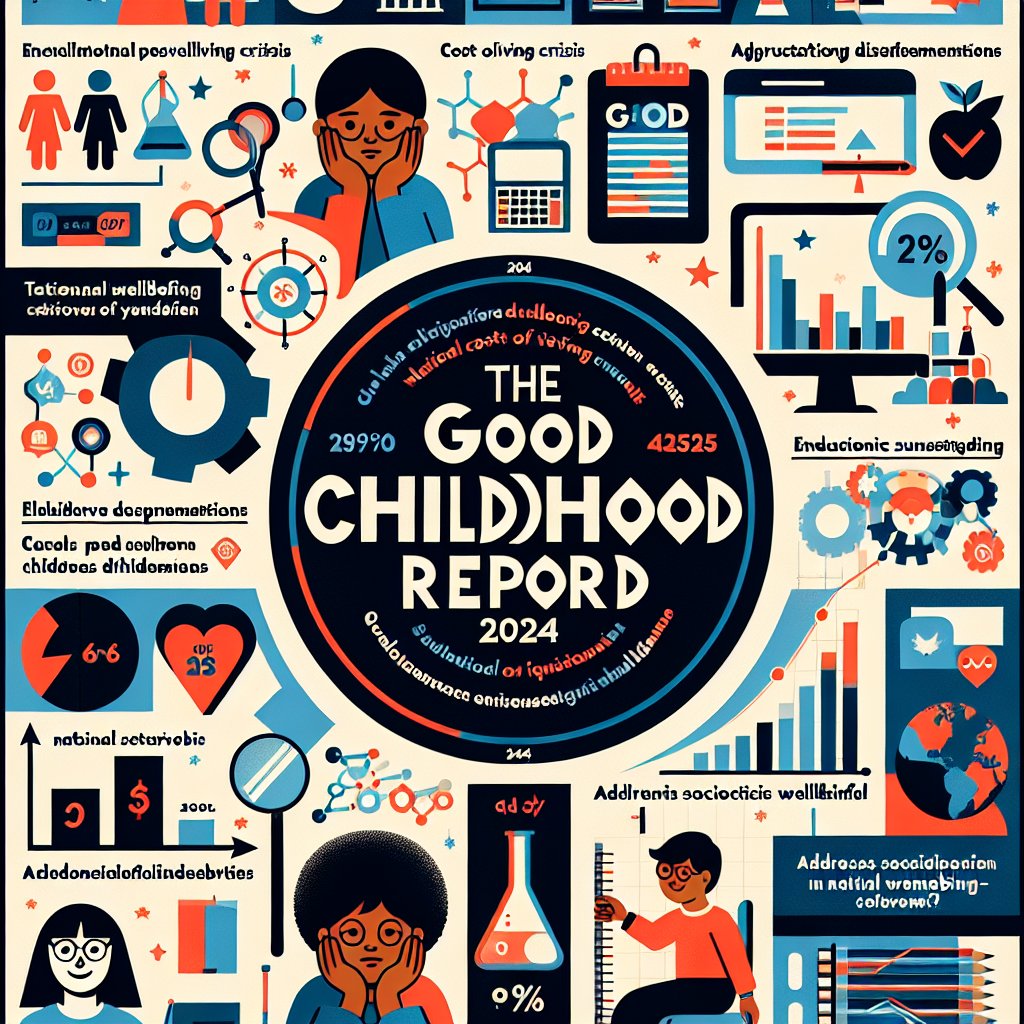Image created by AI
Report Unveils High Levels of Unhappiness Among UK Teens Compared to European Counterparts
A recent study titled The Good Childhood Report 2024, conducted by The Children’s Society, has raised alarms about the wellbeing of young people in the United Kingdom. The report indicates that 11% of children aged 10 to 17 experience low wellbeing, a figure exacerbated among those in households grappling with the cost of living crisis, where one in six reported low life satisfaction. These findings place UK children among the least happy in Europe.
Two out of five British children are concerned about rising prices, with over 14% expressing unhappiness with their school, pointing towards a growing dissension within educational environments. The report, emerging from multiple surveys including the OECD's Programme for International Student Development, reveals an overarching decline in children’s happiness over recent years, encompassing facets of life such as friendships, appearance, and schoolwork.
Despite this, family-related happiness remains mostly stable. Mark Russell, the chief executive of The Children’s Society, has underscored the profound influence of social media on children's self-image, correlating the rise of social platforms with increased dissatisfaction in appearance.
The report draws attention to the financial strain on families, highlighting that more than half of parents struggle to afford vacations and extracurricular activities for their children. Delving into European comparisons, it becomes apparent that British teens' woes are exacerbated by higher poverty rates in the UK and the economic downturn following austerity measures. These policies have depleted community assets and placed undue pressure on children through rigorous testing and examination systems.
Particularly concerning is the notable disparity in contentment between genders. Girls in the UK report considerable unhappiness compared to boys, across various aspects of life. Influencers and societal norms appear to play a role in shaping this gendered discontent, indicating the necessity for ongoing research and dialogue to address toxic attitudes and improve girls' wellbeing.
Happiness in this context is gauged through surveys with numerical scales for subjective wellbeing, yet as the report points out, there is a lack of comprehensive nationwide data on the topic. This has prompted The Children’s Society to call for robust data collection to underpin policy decisions better.
The report culminates in a series of policy recommendations targeting the UK government. These span from establishing a national index for measuring children’s wellbeing, to ensuring accessible mental health professionals in schools, to addressing systemic educational and economic inequalities. In response, UK Prime Minister Keir Starmer has pledged to implement mental health provisions in schools and tackle financial disadvantage, amongst other strategies.
The story sheds light on the multi-faceted nature of childhood and adolescent wellbeing, outlining a complex interplay of education, economics, societal expectations, and familial dynamics that call for a holistic and concerted approach to remedying the lives of young people in the UK.
